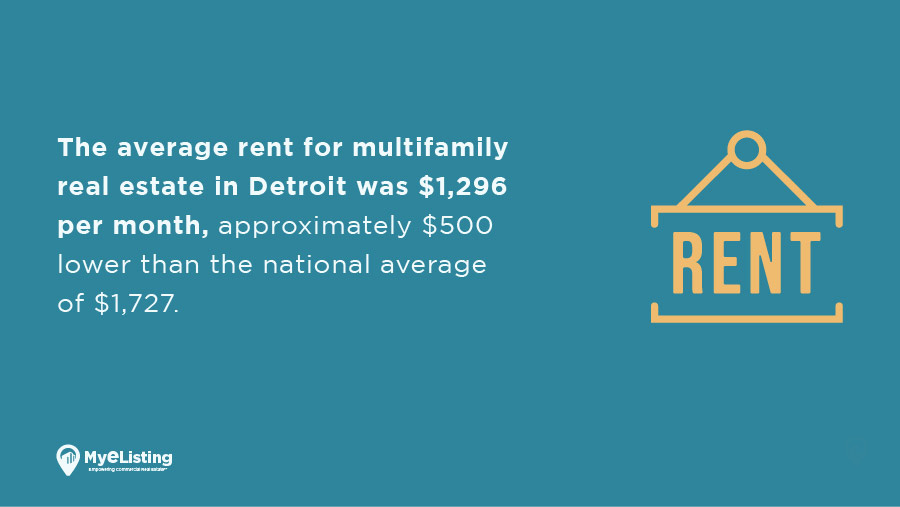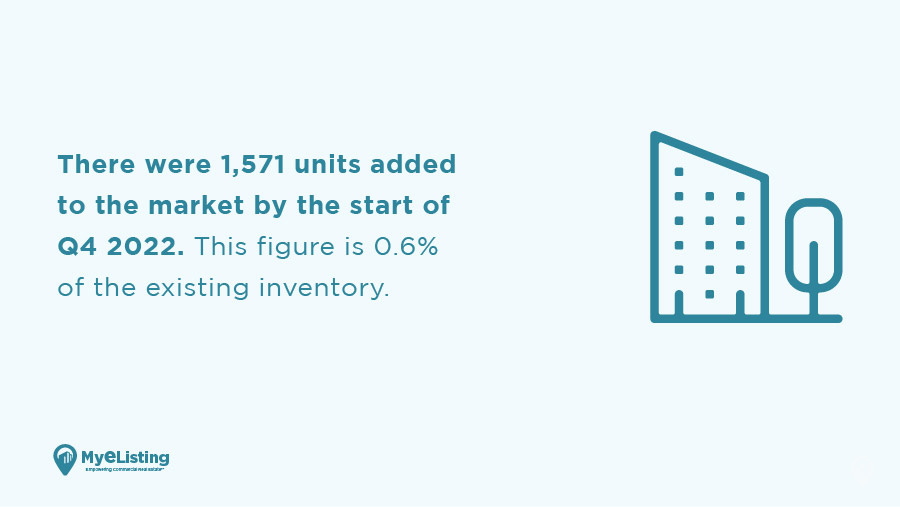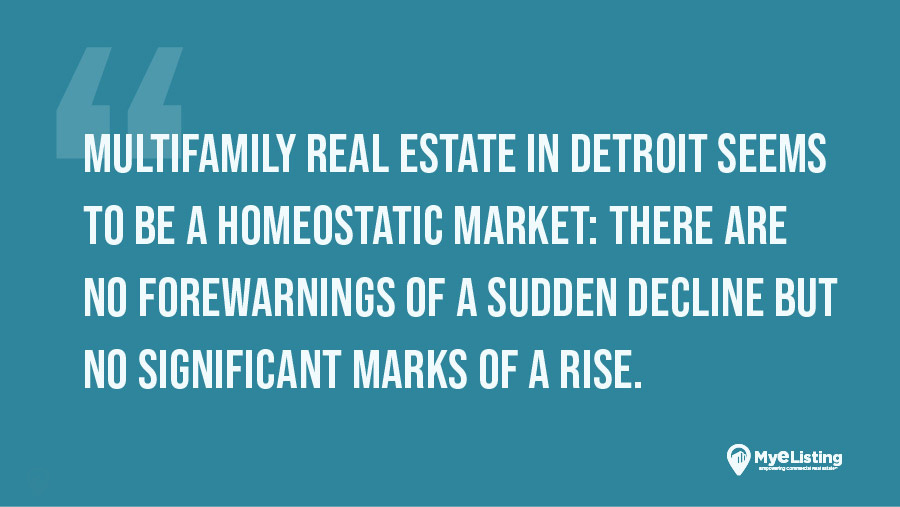Q4 2022 Multifamily Real Estate Report: Detroit, MI

Specializes in providing actionable insights into the commercial real estate space for investors, brokers, lessors, and lessees. He covers quarterly market data reports, investment strategies, how-to guides, and top-down perspectives on market movements.

Detroit’s multifamily market, similar to those located in other major metros across the country, cooled down after Q3 2022.
The labor market for the Detroit metro area posted an unemployment rate of 3.3% by the end of 2022.
Employment in Detroit expanded by 4.7%, with over 77,000 jobs being added by the middle of the third quarter. Every job sector in the city experienced growth.
General Area Overview & Demographics
Detroit is the largest city in Michigan and the 27th most populous city in the United States. The city’s population is estimated to be 632,464. The racial makeup of Detroit is 52.5% Black or African American, 37.1% White, 8.6% Asian, and 0.4% American Indian or Alaska Native.
The average household income in Detroit is $31,700, below the national average of $59,000. The median age of the population is 31.7 years.
The city has several prominent public and private universities, including Wayne State University, the University of Detroit Mercy, Marygrove College, Oakland University, and Lawrence Technological University.
One of the most popular attractions is the Detroit Institute of Arts, which houses over 65,000 works, including Van Gogh’s Self-Portrait and Matisse’s The Window.
It has four distinct seasons. In the spring, temperatures typically reach the mid-50s; by summer, they can rise to the low 80s. Fall temperatures cool off into the 50s and 40s, and winter temperatures can drop to the 20 & 30s.
Summary of Detroit Multifamily Real Estate Performance in Q4 2022
Occupancy decreased across all asset classes by the opening of Q4 2022. The overall rate is down to 96%, a 0.8% decline year-over-year.
Both renter-by-necessity and renter-by-choice have an occupancy rate of 96%. Renter-by-necessity declined by 0.8%, and renter-by-choice declined by 0.2% compared to the same time in 2021.
What are multifamily rents like in Detroit?

The average rent for multifamily real estate in Detroit was $1,296 per month, approximately $500 lower than the national average of $1,727.
Rent was only up roughly 0.3% quarter-over-quarter after peaking at a 0.8% growth in June.
Renter-by-necessity properties were at $1,190 per month, an increase of 0.4% over Q3 2022.
Renter-by-choice was at $1,890 per month, a 0.1% decrease from Q3 2022.
Purchase & Leasing Activity
Year-over-year, sales volume increased by over 64% as $727 million was done through October 2022. This amount alone is 36% higher than all of 2021’s sales.
Nearly 95% of all sales done this year were for renter-by-necessity properties. The average price per unit in Detroit was $137,876 in Q4, a 1.5% increase over 2021.
Notable Multifamily Real Estate Deals in Detroit in Q4 2022
There were several notable deals for Detroit multifamily properties in Q4.
- DRA Advisors acquired Southfield for $66 million.
- Pepper Pike Capital Partners acquired Troy Place for $32 million.
- VennPoint Real Estate acquired The Harrison for $25 million.
These provide select examples among other sales.
New Multifamily Real Estate Development Activity in Detroit in Q4 2022

There were 1,571 units added to the market by the start of Q4 2022. This figure is 0.6% of the existing inventory.
The number of delivered units has remained relatively stable for five years.
By the end of the third quarter, there were 4,215 units under construction, most renter-by-choice properties, while the rest were more affordable alternatives.
There were also over 25,000 units in the planning and permitting stage.
Construction starts struggled in 2022, with ground being broken for only two projects that account for 415 units, while last year saw ten projects start.
The urban and northern suburban submarkets had the highest activity for units being developed.
Market Forecast for Detroit’s Multifamily Real Estate Market
Besides a rise in average sales price, Detroit’s multifamily market has no growth indicators in the near future.
Activity has remained close to a plateau for all of 2022.
While the job market has shown signs of growth, this hasn’t been coupled with a rise in the population, so it’s unlikely that there will be new significant activity.
Takeaways for Multifamily Real Estate Investors

Multifamily real estate in Detroit seems to be a homeostatic market: There are no forewarnings of a sudden decline but no significant marks of a rise.
This could allow an investor to seize an existing property with tenants and expect a steady return. Still, attention is best placed elsewhere for those looking for a hot market.
Do your research and invest wisely.
Find & Connect With Commercial Real Estate Agents & Brokers in Detroit, MI for Free on MyEListing.com!
MyEListing.com maintains one of the largest national databases of commercial real estate agents & brokers. Use it for free to find a commercial real estate agent or broker in Detroit, MI.
Article Search
Share
All Article Categories








